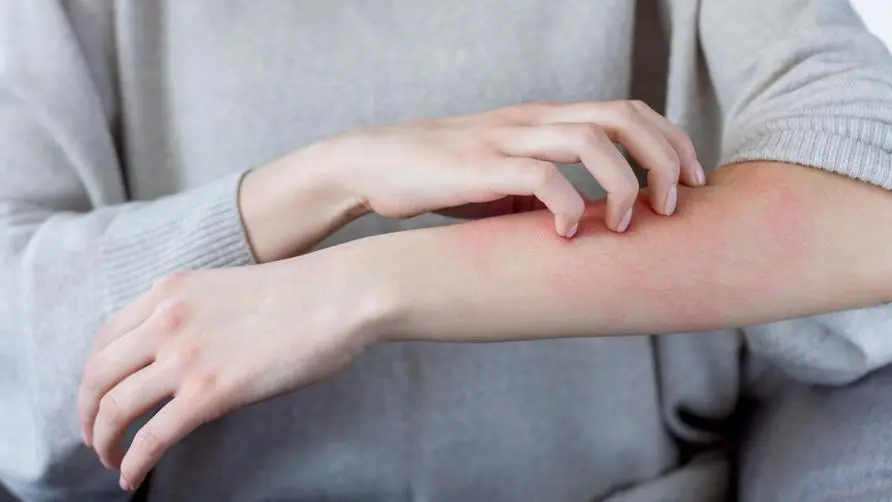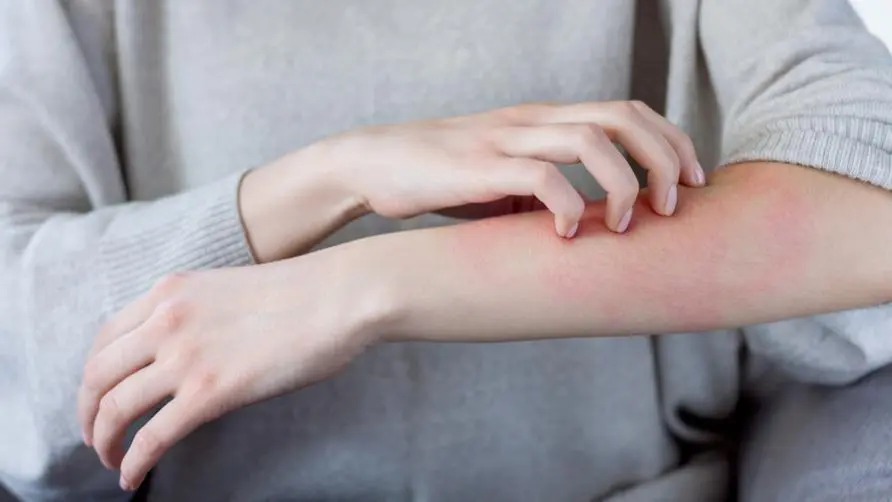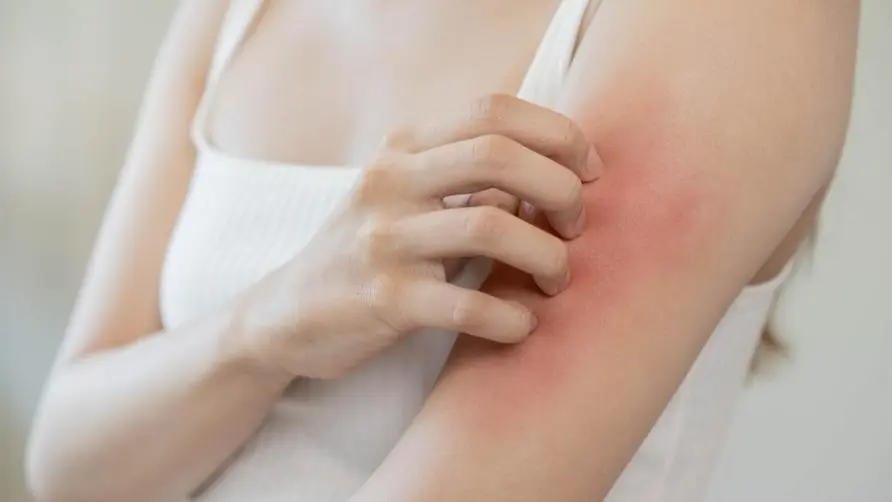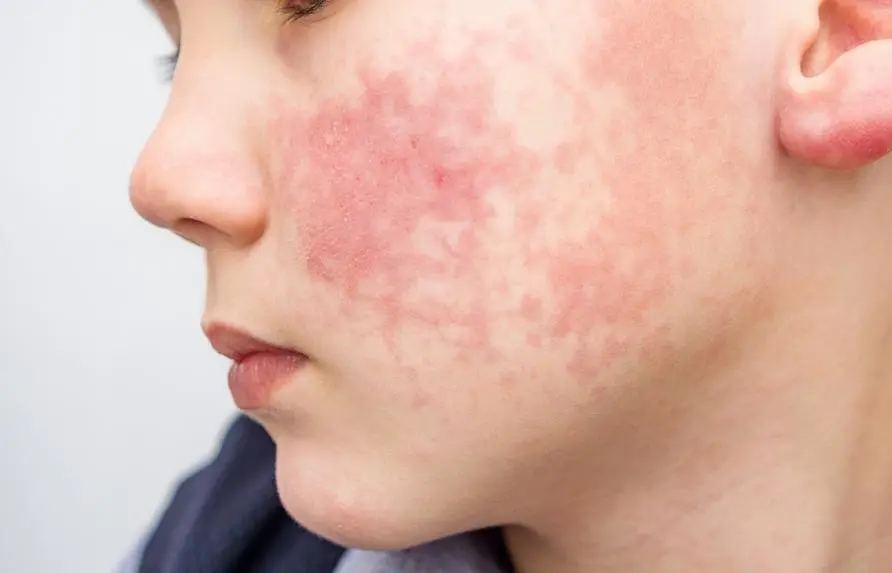More than 6.8 billion are lost every year! "Atopic dermatitis" affects Taiwan's national productivity. Doctors: 6 professions bear the brunt

Atopic dermatitis affects national productivity? National health insurance database estimates annual loss at “$6.8 billion”
Suffering from “atopic dermatitis” not only causes a decline in personal quality of life and health, but may also affect the overall national productivity? A recent survey of patients with atopic dermatitis showed that up to 92.5% of patients’ daily life has been affected by the disease; 88.5% of patients have low work ability; about 1/3 of patients said that they have to take leave due to illness in the near future. Occupations that require frequent handwashing and cleaning, such as medical caregivers, food workers, caterers, beauty salons, cleaners, and car mechanics, are particularly vulnerable to the impact.
Dr. Zhu Jiayu, chairman of the Atopic Dermatitis Patients Association and attending physician at the Dermatology Department of National Taiwan University Hospital, pointed out that atopic dermatitis is a chronic immune disease that affects more than just skin problems. Patients need to wear masks all the time in daily life to prevent dust, and are wary of allergens hidden in quilts and storage rooms. Even being close to their favorite pets can cause unbearable itching. Many inconveniences in life and the strange looks of others cause patients with atopic dermatitis to suffer physically and mentally. Previous research has pointed out that patients with atopic dermatitis have a 1.83-fold increased risk of depression and a 1.67-fold increased risk of suicidal ideation compared with the general population.
Dr. Zhu Jiayu also said that patients with atopic dermatitis are often unable to work smoothly due to the disease, which leads to reduced productivity. It is understood that a severe patient is unable to work normally for 123 days every year. Estimates based on the National Health Insurance Database show that Taiwan loses as much as NT$6.8 billion in productivity every year due to improper control of severe atopic dermatitis. This shows that atopic dermatitis has a wide range of impacts and the urgency of patient care.
Sweating in summer is like “adding salt to the wound”. She was ostracized since childhood and had “suicidal thoughts”
The challenges faced by patients with atopic dermatitis do not end there. Dr. Yang Jingyi, Director of the Dermatology Department of New Taipei City Tucheng Hospital, said that traditional treatments are of limited help to patients because even after taking medication, the skin may still have potential “persistent inflammation.” Not only are symptoms easy to relapse, but patients are more likely to have 30 - 50% chance of experiencing worsening of symptoms.
Symptoms come and go, and treatment is like running a marathon. For Xiao Cheng (pseudonym), it is undoubtedly painful both physically and mentally. He said that when summer comes, sweating on the body is like “sprinkling salt on a wound”; the bathing behavior that most people are accustomed to feels like “torture” in his eyes, and he often has to endure the pain to complete it. The inconveniences in life and physical illness forced him to “work eight jobs” to make ends meet, and he had to temporarily give up his dream of becoming a mapmaker.
Ms. Lin, who was also diagnosed at the age of 2, has been ostracized by her peers due to her illness since childhood. The condition finally stabilized during college, but it broke out again after giving birth to a child at the age of 24. Long-term sleep deprivation, emotional instability, and the severe pain caused by the symptoms gave Ms. Lin the idea of committing suicide. What is even more distressing is that her application for biologic benefits was rejected, leaving her to continue taking steroids and worry about the irregular onset of symptoms that would affect her life.
In this regard, Dr. Zhu Jiayu said that if atopic dermatitis can be diagnosed and treated early, it will not only help control the disease and delay the progression of the disease, but also have the opportunity to reduce the impact on society and the economy, allowing patients to develop their talents and become the backbone of society. elements.
“Biological agents” improved 80% of the condition in 4 weeks! New small molecule oral drugs now have therapeutic potential
In terms of treatment, the medication used for atopic dermatitis is closely related to the severity of the disease. Dr. Yang Jingyi pointed out that there are currently many types of treatment drugs covered by health insurance. In addition to steroids and oral immunosuppressants, “biological agents” are also included in the benefits. The efficacy of oral immunosuppressants for moderate to severe patients is clinically observed to be about 40-50%. To achieve the desired effect, high doses may be necessary, while paying attention to the risk of side effects and regular monitoring of liver and kidney function.
In comparison, biological agents can act on the target more accurately and have a lower incidence of side effects. They can restore damaged skin keratinocytes and thereby improve the skin barrier function. The patient’s condition improved by more than 80% after taking the medicine for 4 weeks, and the clinical effect can last for 1 year. Recently, there are oral “small molecule drugs”, which were introduced to Taiwan in December last year. They make the treatment more efficient by precisely cutting off the cell conduction pathways most related to allergic diseases. It undoubtedly has considerable potential for the treatment of patients with moderate to severe atopic dermatitis.
In recent years, the treatment of atopic dermatitis has made rapid progress, and more and more medical weapons are available. However, health insurance benefits are subject to many conditions, and not everyone can afford the cost of new drugs. Dr. Zhu Jiayu called on relevant units to face up to the employment and productivity issues of patients with atopic dermatitis, so that they can maintain stable jobs in the workplace, contribute to society, and return to normal life.
Further reading:
Her skin has aged 40 years after taking steroids! Is the culprit actually “atopic dermatitis”?





